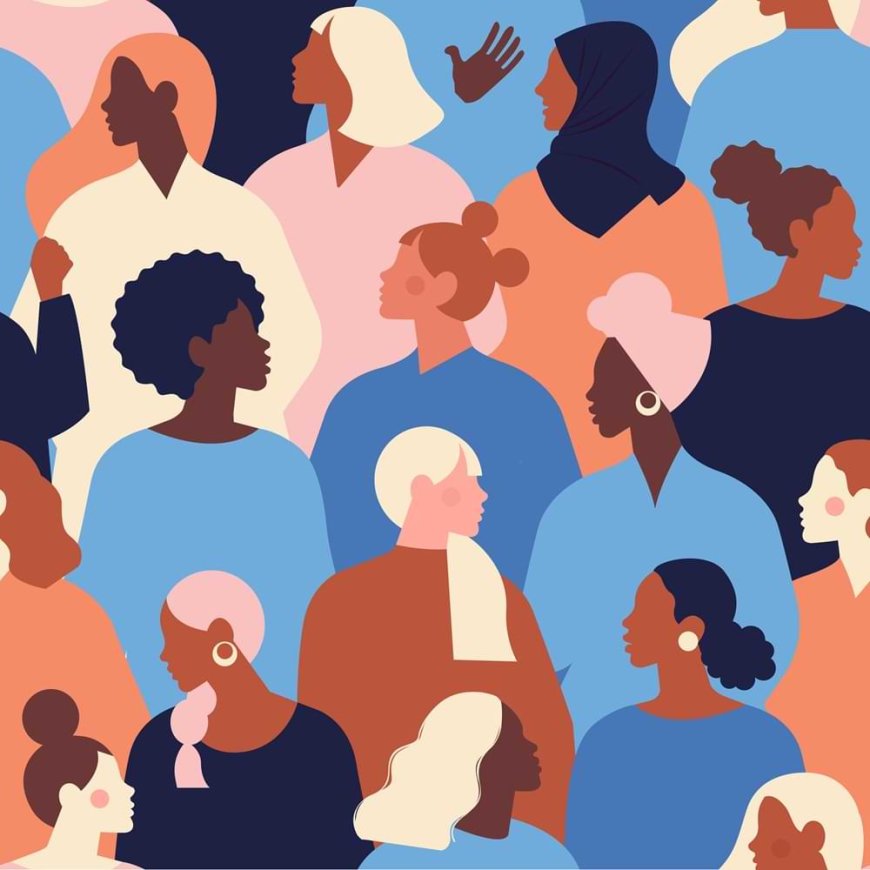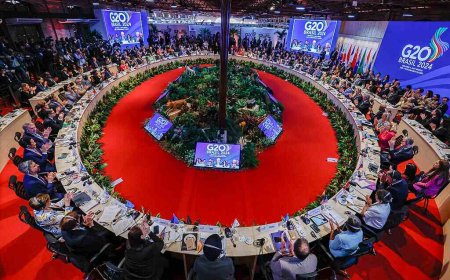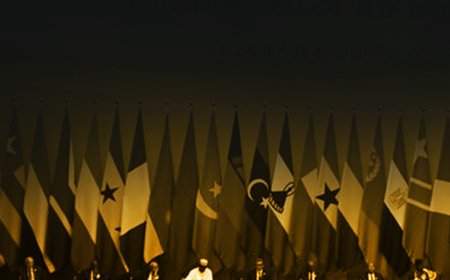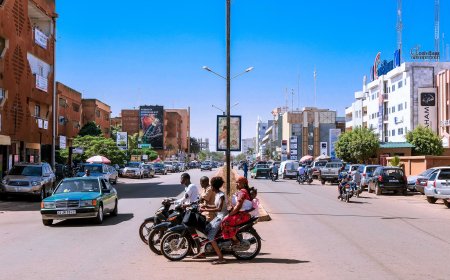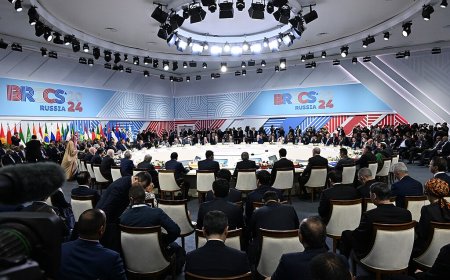Summary
- BMZ’s Feminist Development Policy represents a progressive framework that provides both new and established methods for addressing gender inequality and discrimination, grounded in feminist principles, namely a human-rights based approach, gender transformation, intersectionality, and the importance of strong international alliances, within an anti-colonial and anti-racist context.
- The African socio-political landscape in which the policy is implemented is dynamic, and the nature of German-African relations has evolved to respond to new geopolitical trends.
- Since the adoption of the policy, notable progress has been achieved at the institutional, portfolio and multilateral levels, as evidenced by gender-transformative projects initiated by BMZ partners across Africa.
- A feminist analysis of the policy reveals challenges in its design and implementation, including the influence of prevailing hegemonic Western ideologies in foreign diplomacy that reinforce systems of inequality. The analysis also offers opportunities based on feminist principles of human dignity and security.
- The successful realisation of the policy agenda hinges on the German government’s commitment to actionable change, including a critical examination of global systems that perpetuate inequalities and substantial investment in gender equality.
Introduction
In the past decade, Feminist Foreign Policies (FFPs) have gained significant traction, with countries like France, Chile, and Canada implementing a variety of strategies to integrate feminist principles in their development and foreign policies. In early 2023, two German federal offices under the previous coalition government adopted similar policies: The Federal Foreign Office published the Feminist Foreign Policy Guidelines while the BMZ adopted the Feminist Development Policy (FDP). Although both the FDP and FFP prioritise gender equality in their design and implementation, they differ in scope. This essay, written before the 2025 German Federal election, focuses on the FDP.
A global consensus of definitions of a feminist foreign and/or development policy remains elusive; the BMZ at the time however, articulated its vision for FDP as a human rights policy that aims to eliminate structural causes of inequality. This vision is founded on principles of equity and justice, in which every individual can participate as equals, regardless of gender, gender identity, sexual orientation, race or any other identity.
The policy, along with the BMZ’s 3rd Development Action Plan on Gender Equality (GAP III, 2023-2027), outlines a comprehensive framework for advancing gender equality and promoting women’s rights in foreign diplomacy and cooperation. This progressive agenda effectively seeks to address the systemic discrimination faced by women and other marginalised groups, rooted in core feminist principles like a human-rights based approach, gender transformation, intersectionality and the formation of broad, inclusive alliances. Notably, the policy acknowledges the need for BMZ’s engagements to evolve beyond a hegemonic Eurocentric worldview. By adopting an anti-colonial and anti-racist stance, the policy commits to addressing the historical, social and cultural realities of marginalised groups.
Furthermore, the FDP pledges to increase funding targets by 2027, allocating 85% of funding to projects with gender equality as a secondary goal and 8% to projects where gender equality is a primary goal.
Similar to other feminist philosophies around the world, African feminisms provide a critical and localised perspective on the struggle against male dominance and the oppression of women, girls and other marginalised groups, with a keen focus on issues like neo-colonialism, racism and underdevelopment. As this article delves into the African context within which the BMZ’s FDP is implemented, it highlights the impactful progress made thus far and its significance for African women, girls and marginalised communities. Additionally, it explores concerns and opportunities articulated from an African feminist perspective.
Understanding the African Socio-Political Context
Since the dawn of the twentieth century, Africa has undergone significant political, social and economic transformations, driven by evolving global geopolitics and the pursuit of self-determination by its people. As the continent experiences unprecedented growth fuelled by digital technology, innovation and a burgeoning workforce, new challenges have emerged. Global economic systems intensify competition for resources, privatisation of essential services, and contribute to climate catastrophes and conflicts. These realities exert significant pressure on communities and the environment, perpetuating inequalities not only within Africa but across the world.
Agenda 2063 is the African Union’s ambitious strategy to transform the continent into a powerhouse for the prosperity of its people. The strategy emphasizes inclusive social and economic development, continental and regional integration, democratic governance, and the promotion of peace and security. While significant progress has been made towards realizing these aspirations, people’s lives and economies are threatened by ongoing conflicts including in the Democratic Republic of Congo, Sudan, Mozambique, the Central African Republic and the Sahel region to name but a few. Moreover, Africa is increasingly becoming a focal point in global power dynamics, with nations like China, France, Russia and the United States recognizing the continent’s rising significance.
The COVID-19 pandemic underscored the need for robust global health systems, and this has also catalysed partnerships aimed at bridging the gap between wealthier and developing nations. This presents an opportunity for Africa to strengthen its global position and enhance its health infrastructure. The collaborative efforts of African nations and their partners will be crucial in advancing the vision of Agenda 2063, ensuring its promise becomes a reality for all Africans.
Today, Germany’s relations with many African countries are evolving positively, moving beyond the legacy of its colonial past from 1884 until the end of World War One.),1 While this history has undoubtedly shaped contemporary challenges, it is encouraging to note that the nature of Africa-Germany relations is transforming. Over the past decade, Germany’s policy approach towards Africa has shifted from a self-serving agenda to one grounded in mutual respect and reciprocity. This transformation is largely driven by Africa’s growing economic importance and assertiveness within global economic and political systems, prompting Germany to recognize the strategic value of building collaborative relationships with African partners. This spirit is reflected in the BMZ’s new strategy for Africa and the Feminist Development Policy (FDP), which seek to foster inclusive development and shared prosperity.
Progress Realised Since Policy Adoption
The initial step towards conceptualising the policy has been commendably recognized for the extensive multi-stakeholder consultations conducted with civil society organisations, feminists and human rights practitioners in developing nations. To assess the impact of the policy since its adoption, we will examine four levels and analyse perspectives from civil society, feminist groups, and governments in Africa.
At the Institutional Level
The implementation of the policy began at the institutional level, under the principles of ‘leading by example’ as articulated by the BMZ. The policy’s primary objectives include strengthening the ministry’s and its implementing organisations’ understanding of feminist principles to deliver gender-transformative programs, achieve gender parity in management positions, increase staff diversity, and promote equal opportunities. In a webinar organised by the Africa Policy Research Institute (APRI) in July 2024, a Senior Policy Officer in the division for FDP at BMZ highlighted several positive changes realised thus far. They noted that efforts have been made to identify staff needs both at the project and leadership levels. Initiatives launched include two e-learning modules rolled out on e-learning platforms to increase staff knowledge of feminism; in-person training for staff in regional divisions and at partner country embassies; a “Feminist Lab” initiated as a platform for staff exchange and discussions; an internal newsletter called “Feministische Impulse” to share new studies and best practices and the Women in Leadership (FiF) network, which brings together potential female managers to exchange with experienced leaders at the BMZ.
At the Portfolio Level
The principal objective at this level is to increase gender-focused projects and embed feminist principles in both existing and future initiatives and negotiations with partner governments. One of the flagship projects is the Feminism in Action for Structural Transformation (FAST) Global Project (2023-2026), implemented in four countries, including Rwanda and Tunisia, by the German Society for International Cooperation (GIZ). Building on existing feminist action, FAST aims to scale up innovative approaches to gender transformation. In Rwanda, FAST supports the prevention and response to gender-based violence (GBV) by providing technical and financial support to government institutions, enabling them to effectively deliver a client-centred, rights-based approach. Additional initiatives include supporting Rwanda’s campaign to end period poverty and the support of the annual convening of the Rwanda Feminist Forum, an emerging space for young feminist organising and advocacy in December 2024.
In Tunisia, GIZ and partners promote women’s economic empowerment by improving working conditions and supporting women-led entrepreneurship. In March 2023, GIZ reported the successful establishment of the first export consortia comprising 52 women owned and led businesses across various sectors, a platform to enhance their competitiveness in the country’s export market.
Beyond FAST, GIZ is actively engaged in several bilateral projects across the continent, including: i) the Food and Nutrition Security, Enhanced Resilience Global Programme (2014-2026), implemented in partnership with CARE in a dozen African countries such as Malawi, where it promotes father-to-father groups to raiseawareness among men about the importance of collaborating with their wivesto improvefamily nutrition; ii) the Responsible Land Policy Global Programme (2015-2026), which operates in eight African countries; iii) the Promotion of Agricultural Finance for Agri-based Enterprises in Rural Areas (2016-2027) implemented in eight African countries and iv) the “Rural Employment with a Focus on Youth Global Project (2018-2024), implemented in four African countries, aiming to improve employment opportunities for young people in rural areas.
While these initiatives are commendable and reflect a commitment to improving the socio-economic status of women, it is important to recognize the current lack of publicly available data necessary to assess their impact. Addressing this gap will further strengthen advocacy efforts for women’s rights across the continent.
At the continental level, the policy seeks to collaborate with the African Union (AU), as the principal body dedicated to promoting continental integration and prosperity. The FDP emphasizes meeting partners where they are, which is why it aims to build upon strategic objectives outlined in Agenda 2063. For example, the Promotion of Human Rights and Empowerment of Women in Africa (AWARE) project, running from 2023 to 2026, builds on the significant progress made in advancing women’s rights by utilizing landmark instruments such as the African Charter on Human and Peoples’ Rights and its Protocol on the Rights of Women in Africa, also known as Maputo protocol. This initiative is designed to strengthen the capacities of AU bodies to effectively implement these human rights instruments.
The project leverages the 3Rs approach outlined in the FDP: enhancing the rights of women and girls as enshrined in continental human rights frameworks, supporting women’s access to financial resources, and promoting women’s participation and representation in decision-making processes. In 2024, the project reported encouraging results, including: i) capacity building of over 700 young African female leaders in civic, public and business leadership and management; ii) the convening of male allies as part of the AU’s High Level Presidential Initiative on Positive Masculinity; and iii) technical assistance provided to Uganda for the review of the Maputo protocol and the submission of its inaugural periodic report to the African Commission on Human and People’s Rights.
At the Grassroots Level
The policy recognizes the vital role of feminist and human rights organisations as catalysts for change. African feminist networks such as FEMNET have significantly contributed to shaping the design of feminist foreign policy and maintaining momentum through discourse and analysis. Furthermore, GIZ reports a notable shift in its approach, acknowledging the critical work of grassroots feminist organisations. Notable projects supported thus far include the Promoting Gender Responsive and Inclusive Politics and Economy in the MENA Region “WoMENA” (2022-2025), implemented in North African countries, which focuses on increasing grassroots women’s political and economic participation through targeted actions and collaborations. In 2024, GIZ also announced agreements with partner countries to support interventions aimed at preventing gender-based violence (GBV) in Sudan and Somalia, enhancing women's empowerment and economic resilience for internally displaced women in Sudan, and providing in-kind contributions of solar panels to women's market vendors in Uganda.
At the Multilateral Level
The principal objective of BMZ is to promote transformative gender equality approaches and enhance feminist voices from developing nations within international forums. Germany is a key player with significant influence in major intergovernmental forums, including the G7, the G20 and the European Union. According to data published by the Organisation for Economic Co-operation and Development (OECD, 2024), Germany emerged as the second largest donor of official development assistance (ODA) in 2023, contributing 36.6 million US dollars (approximately 33.8 million Euros). This notable increase in ODA in recent years has been largely driven by support to Ukraine. During the 79th UN General Assembly in 2024, Germany exemplified its leadership by co-convening dialogues aimed at supporting feminist foreign policies (FFPs) and encouraging UN member states to adopt similar initiatives. As more states embrace feminist principles, Germany’s leadership becomes increasingly vital. Feminist advocates in Europe have underscored the necessity for the EU to adopt a more ambitious intergovernmental policy, presenting an exciting opportunity to amplify the voices of marginalised groups and centre human dignity.
African Perspectives of the Policy: Emerging Opportunities for Progress
At the institutional level, the policy and GAP III could benefit from clearer and concrete pathways toward achieving a post-colonial, anti-racist agenda. The principles of decoloniality and the decolonization of development policy are foundational for African advocates of FDP, and it is essential that this policy reflects those priorities. However, the current frameworks lack explicit strategies for developing institutional knowledge and promoting diversity to effectively address existing prejudices within the BMZ and its structures. The absence of clarity regarding the implementation of anti-colonial and anti-racist approaches is evident across other levels of the policy.
In terms of portfolio application, feminist principles have thus far been integrated into only two ministry portfolios, that is, the BMZ and Federal Foreign Office, which may limit their overall impact. To maximize effectiveness, these principles should be applied beyond a single sector, taking into account the complexity and diversity of challenges faced by African women and girls, and their unique experiences as they relate to trade, peace and security, militarisation and infrastructure development across the continent.
At the grassroots level, women’s rights organisations and movements are increasingly gaining visibility within mainstream global policy discourse. However, funding for grassroots organizations remains scarce. The Global Fund for Women reports that only 1.9% of global charitable donations go to organizations dedicated to women and girls, with even less going towards Black feminist social movements. This is because “traditional philanthropy is an old boys’ club that gives to the same causes year after year, all while ignoring the most marginalised and voices from most impacted communities.”)2
While analysis of FDP priorities and recent severe budget cuts to development and humanitarian aid in Germany suggests a gap between rhetorical commitment and concrete action, it also highlights an opportunity to better align funding with the needs of the most vulnerable. Focus should be on ensuring that marginalised communities, especially women and girls in their diversity, persons with disability, LGBTQ groups and indigenous people are empowered for long lasting change.
At the multilateral level, it is encouraging to see some African governments engaging with feminists and women’s rights advocates, although there is strong opposition to progressive feminist agendas on the continent, arguing that feminism is foreign and contradicts African cultural/religious values. Some African nations continue to face economic challenges and in turn prioritise immediate socio-economic needs over foreign policy initiatives.
Furthermore, while the global political and economic systems landscape is gradually shifting, allowing for greater participation from African stakeholders, it still continues to reinforce power dynamics which limit African stakeholders’ contribution and agency, shaping an already existing Western agenda. Colonialism and racism have historically influenced global power dynamics; however, there is a growing recognition of the need for equitable development policies that acknowledge and respect Africa’s rich and diverse perspectives. This shift represents a new opportunity for collaboration and mutual benefit, moving away from exploitative practices reminiscent of the 1880s and 1900s. As Ms. Kelebogile Zvobgo, a Zimbabwean political scientist, Founder and Director of the International Justice Lab, aptly states, “race is not a perspective on international relations, it is a central organizing feature of world politics.” Therefore, acknowledging this reality is essential for fostering meaningful change.
The world operates as an interdependent village, and African feminists advocating for the decolonisation of FDPs emphasize that the liberation of African women, girls, queer individuals and indigenous communities is intrinsically linked to global stability and environmental sustainability. Notably, Germany’s first National Security Strategy adopted by the Federal Government, articulates the country’s vision beyond its borders, aligning with principles articulated in BMZ’s FDP. However, between 2022 and 2023, Germany’s arms exports rose tenfold, and in the same period, the country was the second-largest conventional arms exporter to Israel, highlighting a potential contradiction between the state's values and actions.
Despite national budget constraints, Germany’s steadfast support for militarised interventions in Ukraine, Israel, Sudan and the Sahel region reflect strategic geopolitical interests in countering the growing influence of the so-called non-Western actors such as Russia, China and Turkey in Africa, rather than genuine humanitarian concerns. These actions raise important questions about the alignment of such interventions with the principles enshrined in the BMZ FDP.
The rise of far-right political movements in Germany and Europe is reshaping and shrinking civic space and freedom of expression. This is apparent in certain German feminist organisations that, despite their intentions, continue to practice white imperial feminism. The ongoing crisis faced by Palestinians exemplifies this contradiction, as these organisations often remain silent on their government’s complicity in injustices, in sharp contrast to their vocal opposition to the war in Ukraine.
Using the FDP to Achieve Sustainable Impact
African feminists advocating for FDPs present a transformative and sustainable vision for global security – one that prioritises peace, equality and coexistence as essential pillars of democracy. This perspective aligns with the principles articulated in the preceding section. While the BMZ FDP may not offer an immediate solution to eliminating global inequalities, it presents avenues for practical and innovative approaches that can create a meaningful impact in the lives of African people. These can be strengthened at multiple levels:
Institutional and Portfolio Levels
The BMZ should elaborate and implement a clear, bold anti-racist and anti-colonial agenda. Traditional foreign development frameworks often fail to address complex challenges faced by marginalised African women and girls, because they are not designed with their needs in mind. The vision articulated by African Feminists for a German FDP necessitates intentional and courageous discussions about power dynamics, as well as a transformative shift in attitudes, practices, and long-held beliefs regarding race, class and gender across all ministries. Research has shown that when staff implementing projects undergo transformation, in turn they are likely to implement transformative programs.
Grassroots Level
Feminist resourcing is built on principles of mutual trust, highlighting the need to increase funding for feminist movements, as well as both formal and informal networks and organisations which have long advocated for social justice. As agreed by young feminists who attended the annual convening of the Rwanda Feminist Forum, gender transformative projects should shift away from rigid micro-management of earmarked funds and instead increase direct support to civil society and grassroots movements.),3 This requires the development of context-relevant mechanisms and modalities for substantial, flexible, and long-term funding that sustains feminist ecosystems actively confronting challenges such as the climate crisis, conflict, anti-feminism and continued colonisation of development.
In a rapidly evolving world, continuous engagement with civil society is encouraged through the establishment of permanent advisory groups of civil society experts, movement leaders and human rights defenders. Additionally, the right to self-determination for African people is predicated on their ability to drive the narrative and shape their realities. The BMZ and partners should support building knowledge inspired by Afro-centric solutions like the African Charter of Feminist Principles.
Multilateral Level
The BMZ and the German government should demonstrate their commitment to international law and the promotion of feminist security principles that prioritise human security and dignity. The continued support of arms proliferation in Africa and beyond goes against principles enshrined in FDP, as women and girls are particularly affected by wars and armed conflict. Disarmament and peace promotion efforts should be prioritised and expanded to, with women and other marginalised groups playing a central role in peace negotiation processes.
Germany has significant influence in intergovernmental bodies such as the G7 and the European Union; encouraging decolonial practices that challenge Eurocentric and hegemonic views is essential to promote more inclusive governance.
Additionally, in the efforts to promote international alliances, Germany should re-evaluate its partnerships with African governments and groups with poor governance and human rights track records, as these alliances risk reinforcing democratic backsliding and the marginalization of women, girls and other marginalized groups. The focus should shift to strengthening cooperation with civil society and feminist movements committed to social justice and ensure that Germany’s engagements align with principles of equality and sustainable development.
Conclusion
As the feminist development policy enters its second year of implementation, the German government is presented with a remarkable opportunity to adapt to evolving realities of African nations and the global community. We are in an era of collective consciousness where accountability is paramount. The crucial question at this juncture is: how committed is the German government to advance a transformative agenda that challenges prevailing global hierarchies and amplifies the voices of marginalised people beyond mere tokenism? The potential for Germany to lead by example is evident. For African feminists, this moment calls for continuous critical engagement, mutual learning and innovative approaches to address the most pressing challenges of our times.
References
African Union Commission. (2015, September). Agenda 2063: The Africa we want. https://au.int/sites/default/files/documents/36204-doc-agenda2063_popular_version_en.pdf
Alkousaa, R. (2024, September). Germany has stopped approving war weapons exports to Israel, source says. Reuters. https://www.reuters.com/world/germany-has-stopped-approving-war-weapons-exports-israel-source-says-2024-09-18/
Asasira, J. (2022, December). What African feminist movements are up against in 2023. Open Democracy. https://www.opendemocracy.net/en/5050/african-feminism-2023-threats/#:~:text=Meanwhile%2C%20national%20governments%20on%20the,war%20waged%20by%20Western%20conservatives
Berger, M. (2024, November). How German imperialism rebranded itself as feminist. Jacobin. https://jacobin.com/2024/11/germany-feminist-foreign-policy-gaza
Centre for Feminist Foreign Policy. (2023). Towards an intersectional feminist development policy for Germany: A collaborative report on Southern feminist recommendations. http://www.centreforfeministforeignpolicy.org/publications
Federal Ministry for Economic Cooperation and Development. (2023). Shaping the future with Africa: The Africa strategy of the BMZ. https://www.bmz.de/resource/blob/137602/bmz-afrika-strategie-en.pdf
FEMNET. (2024). Feminist foreign policy & debt: Prioritizing debt justice in feminist foreign policy. https://www.femnet.org/2024/10/feminist-foreign-policy-debt/
GIZ. (2024). African women advancing rights and empowerment in Africa (AWARE) factsheet.
GIZ Rwanda. [@giz_rwanda]. (2024, July 11). End #GenderBasedViolence & #periodpoverty:Our project prevention of sexualised and gender-based violence together with ZFD SIGA Refugee Programme, @HDIRwanda & @KosmotiveRwanda are providing reusable sanitary pads & #MenstrualHealthHygiene info to 300 women & girls at @youthkirehe. [Image attached] [Tweet]. X. https://x.com/giz_rwanda/status/1811392669622353967
Global Fund for Women. (n.d.). 1.9 Rising campaign statement. https://join.globalfundforwomen.org/a/rising
Green, A. (2024, September). Germany plans billions in cuts to development, humanitarian aid. Devex. https://www.devex.com/news/germany-plans-billions-in-cuts-to-development-humanitarian-aid-108259
Holmes, O. (2024, September). Which countries have banned or restricted arms sales to Israel? The Guardian. https://www.reuters.com/world/germany-has-stopped-approving-war-weapons-exports-israel-source-says-2024-09-18/
Humanity in Action Deutschland. (2005). Facing the past to liberate the future: Colonial Africa in the German mind. https://humanityinaction.org/knowledge_detail/facing-the-past-to-liberate-the-future-colonial-africa-in-the-german-mind/
OECD. (2024). Slight increase in official development assistance in 2023. https://focus2030.org/Slight-increase-in-Official-Development-Assistance-in-2023#:~:text=ODA%20REACHES%20A%20NEW%20HIGH,the%20United%20Kingdom%20and%20France
Papagioti, F., Thompson, L., & Ahmed, S. (2022). Feminist foreign policy and development finance for gender equality: An assessment of commitments. Washington, DC: International Center for Research on Women.
Reuters. (2024, October). Germany will send more weapons to Israel soon, Scholz says. Reuters. https://www.reuters.com/world/germany-will-send-more-weapons-israel-soon-scholz-says-2024-10-10/
The Federal Government. (2023, June). Robust. Resilient. Sustainable. Integrated security for Germany: National security strategy. https://www.nationalesicherheitsstrategie.de/National-Security-Strategy-EN.pdf
Wanjohi, W., Onkoba, C. A., Majale, N., & Maloba, N. M. (2024, August). The continent falling behind: Africa’s placement in the global feminist foreign policy discourse. African Arguments. https://africanarguments.org/2024/08/the-continent-falling-behind-africas-placement-in-the-global-feminist-foreign-policy-discourse/
Endnotes
[1] Humanity in Action Deutschland (2005). Facing the Past to Liberate the Future: Colonial Africa in the German Mind available at https://humanityinaction.org/knowledge_detail/facing-the-past-to-liberate-the-future-colonial-africa-in-the-german-mind/
[2] Global Fund for Women 1.9 Rising Campaign statement available at https://www.globalfundforwomen.org/rising/
[3] The author gathered this information during a discussion meeting held by the Rwanda Feminist Forum, funded by the GIZ/FAST program in December 2024, which they participated in.
About the author
Olive Uwamariya
Olive Uwamariya (she/her) is a Pan-African feminist and independent consultant based in East Africa. With 15 years of experience in women’s rights advocacy across the Great Lakes region, she now focuses on feminist movement building and global analysis from an African feminist lens. She holds degrees from the Catholic University of Eastern Africa and the University of Buckingham.
